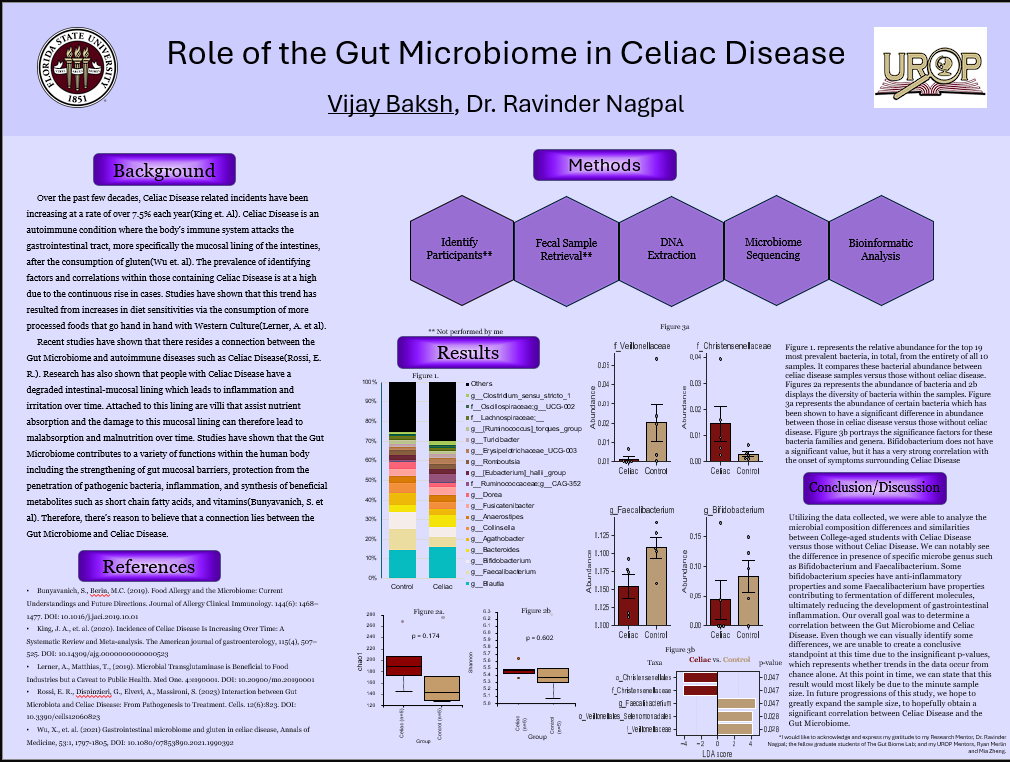Research Symposium
24th annual Undergraduate Research Symposium, April 3, 2024
Vijay Baksh Poster Session 5: 4:00 pm - 5:00 pm/191

BIO
My name is Vijay Baksh and I am a first-year student at FSU pursuing a Bachelor's degree in Biology with a concentration in Cell and Molecular Biology and a minor in Forensic Science. Following my undergraduate curriculum, I plan to pursue a Masters of Science in Molecular Biotechnology where I would like to pursue a career in either Forensic Biology or Molecular Biology Research.
Role of the Gut Microbiome in Celiac Disease
Authors: Vijay Baksh, Ravinder NagpalStudent Major: Biology
Mentor: Ravinder Nagpal
Mentor's Department: Department of Health, Nutrition, and Food Sciences Mentor's College: FSU Education, Health and Human Science Co-Presenters:
Abstract
Celiac Disease incident rates have increased 7% every year over the past few decades. Celiac disease is an autoimmune condition where the body’s immune system attacks the mucosal lining of the small intestines. This reaction occurs following the consumption of gluten, over time, typically leading to malabsorption of nutrients and therefore malnutrition. Studies have shown that depletion of the mucosal barrier has a correlation with the Gut Microbiome; it plays a crucial part in maintaining homeostasis within the body due to its vast range of functions which include strengthening the gut mucosal barrier, protection from pathogenic bacteria, and synthesizing vitamins. Research has additionally shown that an imbalance in Gut Microbiota(bacteria) may lead to the development of diseases as well as the onset of symptoms surrounding autoimmune conditions, sparking an inquiry as to if and how the gut microbiome affects the onset of symptoms regarding Celiac Disease. The primary goal of this research is to develop a concrete foundation surrounding the Gut Microbiome and its correlations with Celiac Disease. An additional goal of this project is to strengthen biotechnical skills through DNA extraction, sequencing, and bioinformatic analysis of previously collected fecal samples from collegiate students. Further implementations of this study would be to individually execute a similar project expanding the participant pool in a pilot study. The overall goal of future and current projects would be to identify correlations or dissimilarities within the gut microbial composition between collegiate students who do and do not have Celiac Disease.
Keywords: Celiac Disease, Gut Microbiome, Gastrointestinal Tract,


